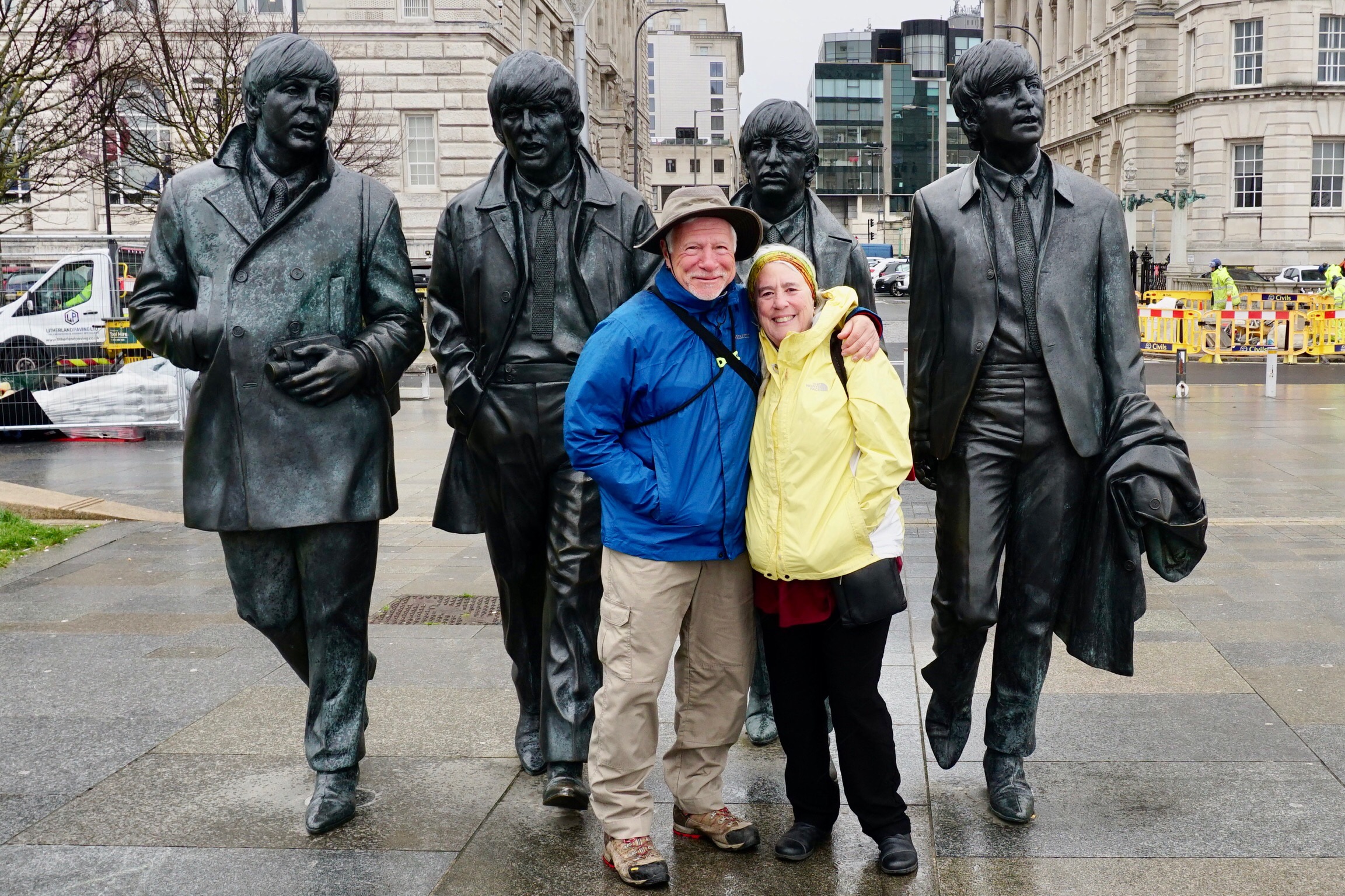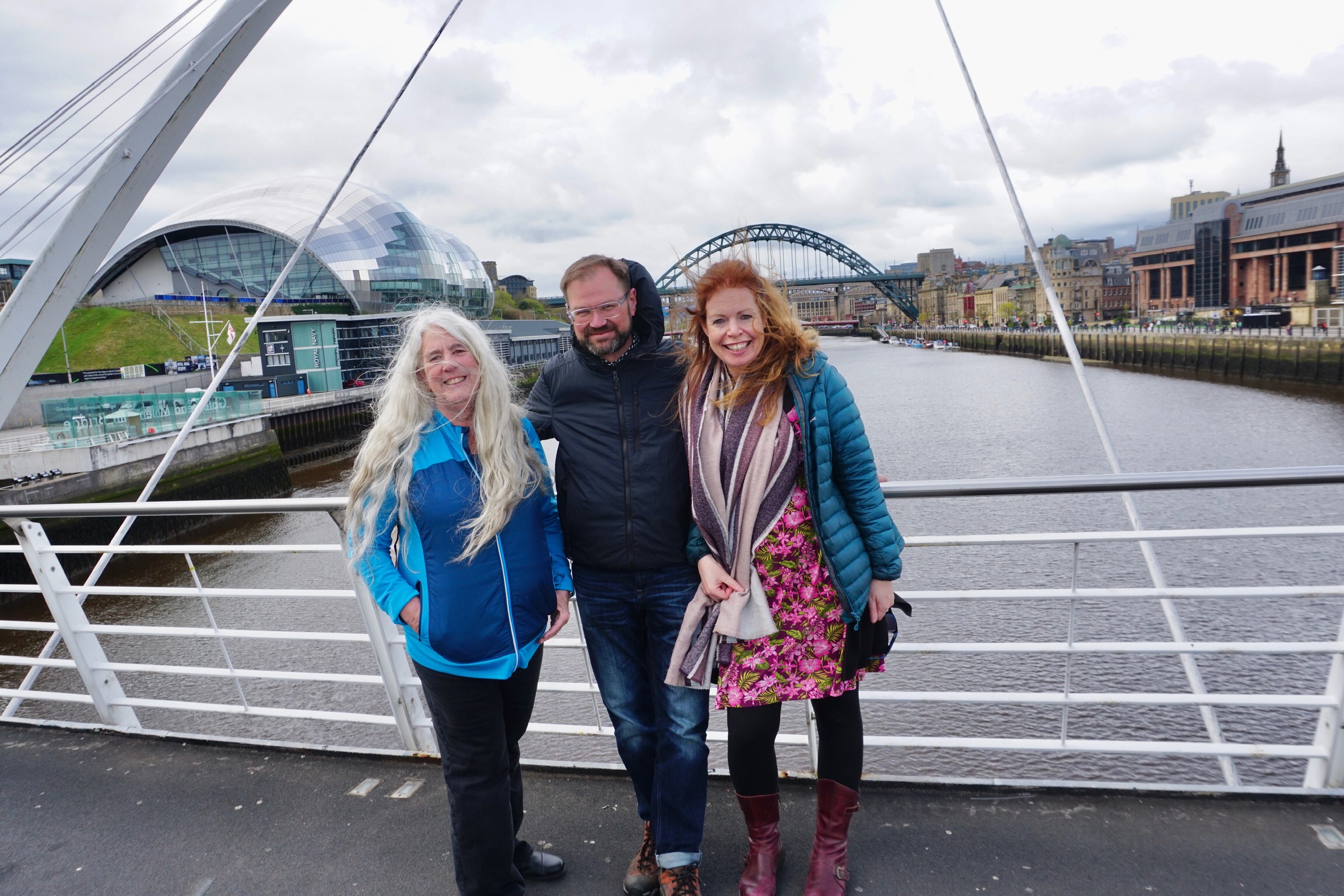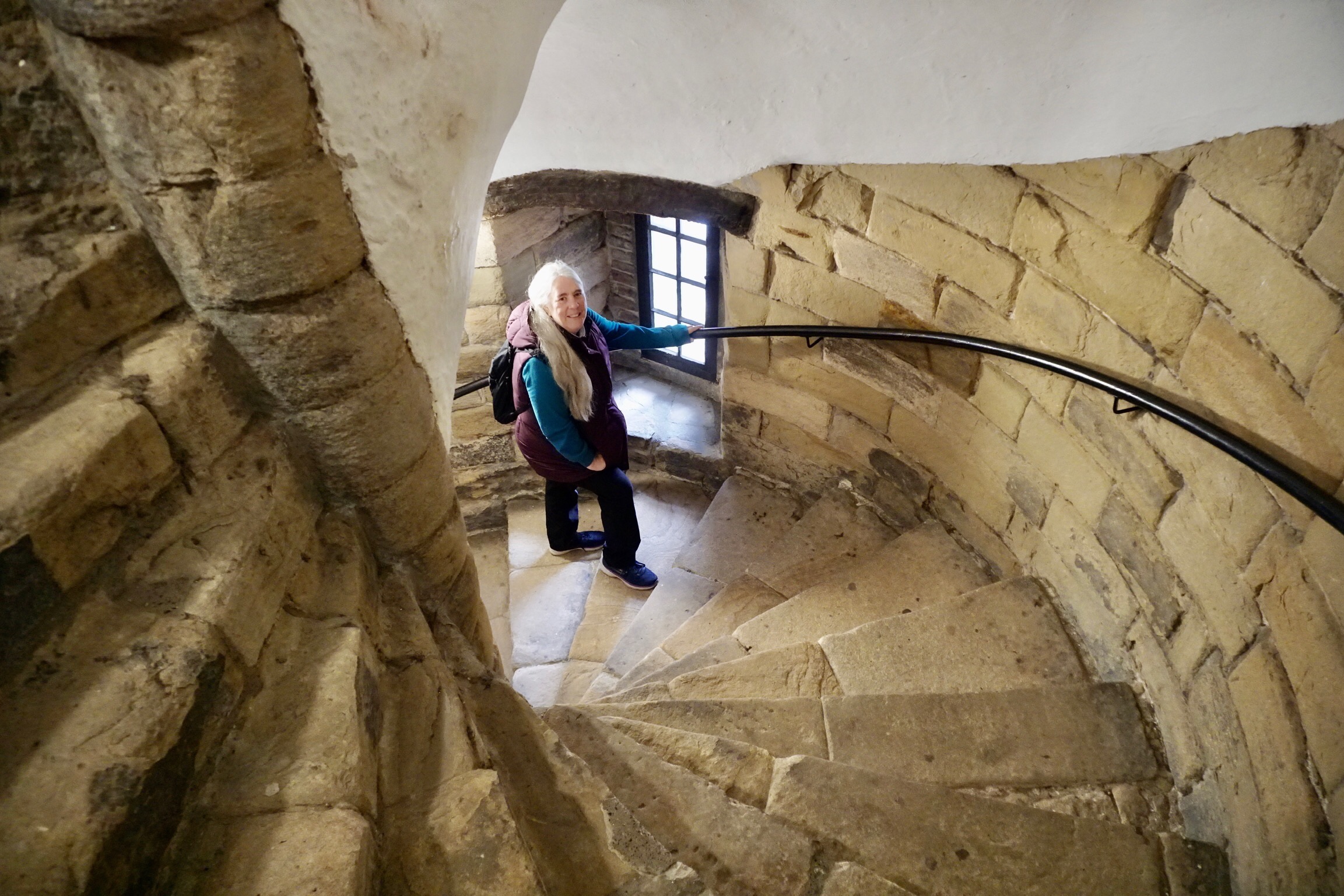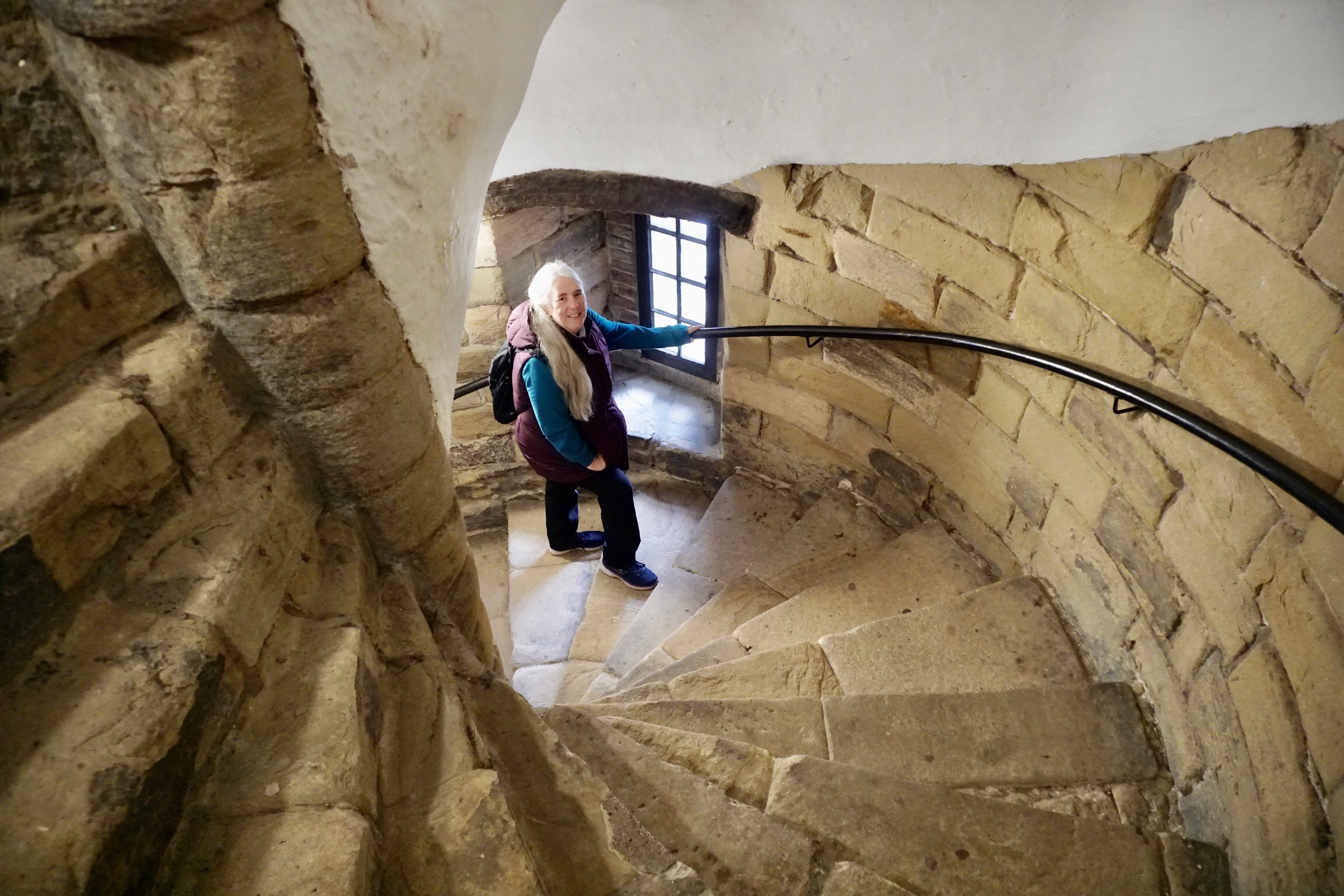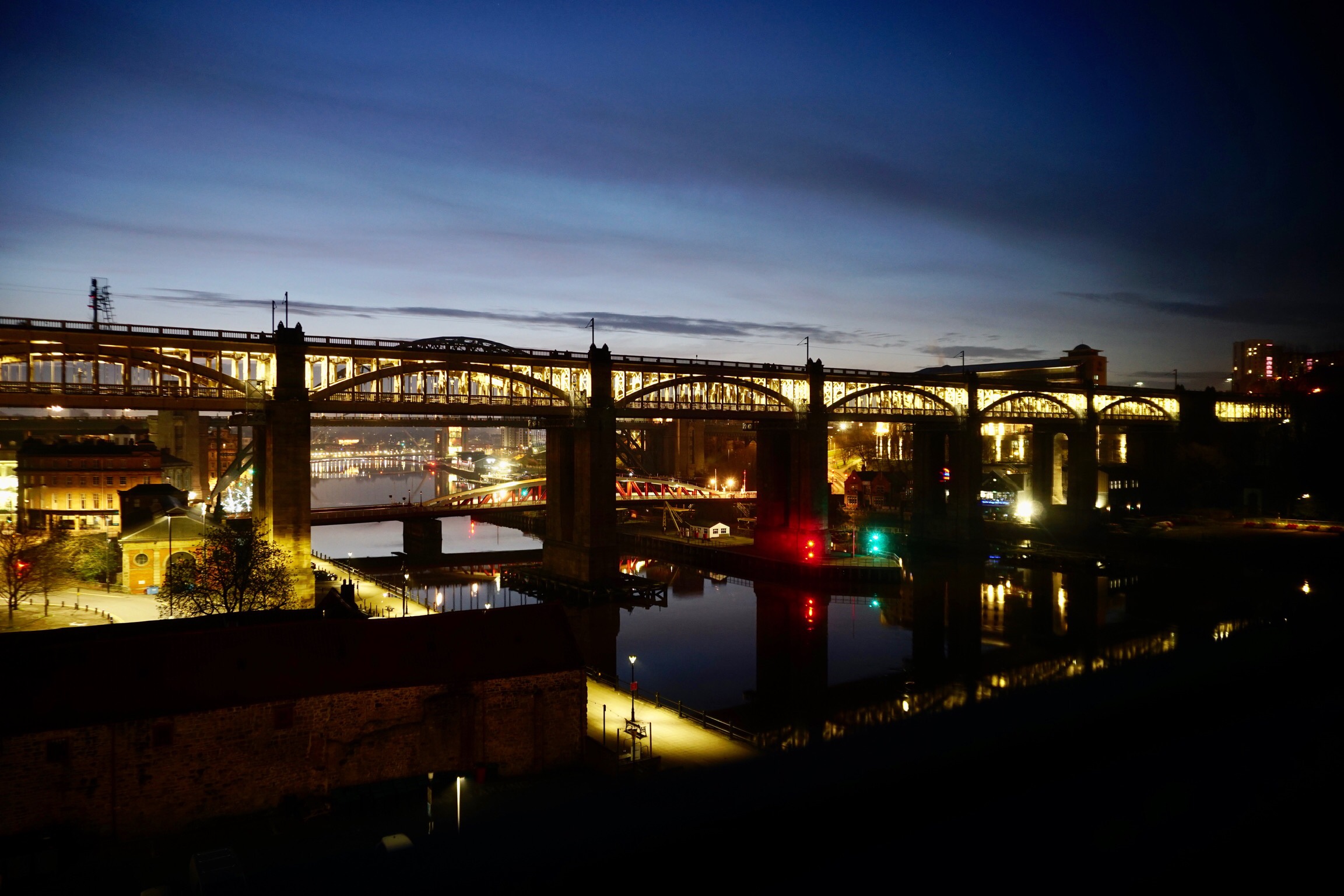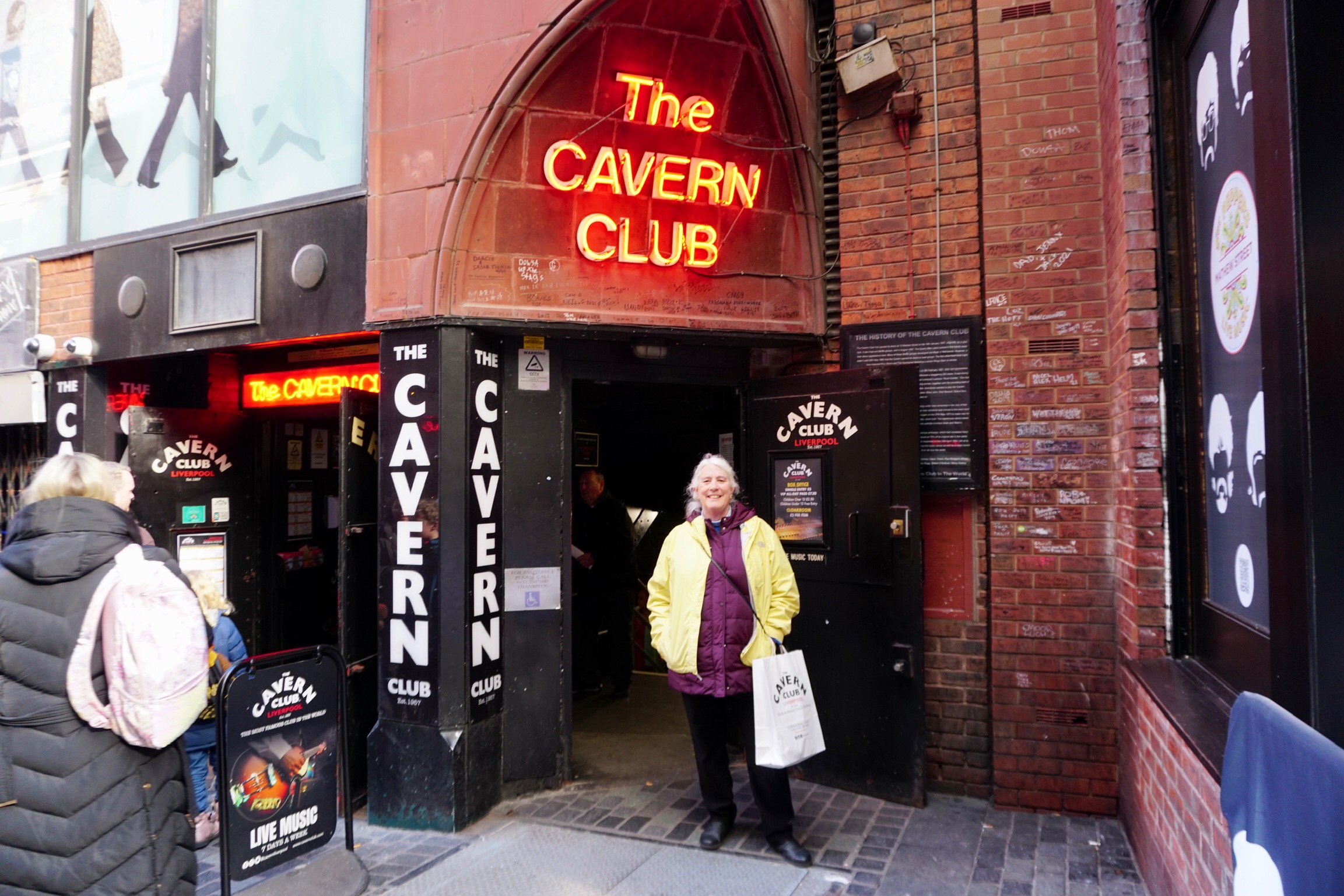
Written April 14, 2023, at Middlewich, England.
Weather wise, our second full day in Liverpool (Thursday) began as a carbon copy of the previous few days. Cold, blustery, and dampness that makes your bones ache. Nevertheless, we made the best of it and by afternoon there were even some breaks in the clouds. The rain and cold returned today, Friday.
Earlier today we met our Kansas City friends, Pat and Wendy, at the Liverpool Lime Street train station for their arrival.

We enjoyed hanging out with them for a bit before we had to catch our train from the same station traveling on to Middlewich.

They will rejoin us at our lodging, The Boar’s Head Inn, in Middlewich on Sunday. The four of us will take charge of the 62 foot narrowboat, Fjord Empress, on Monday at Andersen Boats after first loading provisions and receiving operating instructions. Pat and Wendy will travel aboard with us for the first five of our 21 days.
Here are pictures and brief narratives of our Thursday activities in Liverpool:
We visited Saint John’s Gardens which until the late 19th century was a cemetery containing the remains of over 80,000 people. Among the deceased were nearly 30,000 who had died in a cholera epidemic that ultimately killed nearly a quarter of the city’s population.

During the conversion of the cemetery to a park the earthly remains of those who were buried were “disposed of”.
The monumental building seen above overlooking the park is Saint George’s Hall. The structure was completed in 1854.

It contains one of the most opulent spaces in the United Kingdom, a haven for the wealthy and important. Yet in the bowels of the building are dungeons that held the criminally accused and the criminally insane prior to trial. The Court, also situated in the building, is where at least 150 people were sentenced to die and thousands were sentenced to “transportation“ which meant banishment, most often to Australia. Sentences were extremely harsh. The theft of a piece of fruit or a loaf of bread could result in a sentence of 10 years or more.



Our wanderings took us by the Liverpool Lime Street railway station. The original station at this location is the oldest passenger train station in the world. Service began here in the 1830s.


Near Saint George’s Hall is the British tomb to the unknown soldiers of the First and Second World Wars.

In the same neighborhood is Liverpool’s huge science museum, library, and art gallery. They are located in stately 19th-century buildings.




The Philharmonic Dining Rooms, once a private men’s club, is an incredibly ornate pub that features what are perhaps the most expensive urinals in the world. They were custom-made in 1900 and are said to be insured for two million dollars. Paul McCartney and James Corden visited here and put on an impromptu concert during a Carpool Karaoke outing.




Next on our list was Mathews Street and the iconic Cavern Club, said to be the birthplace of the Beatles.





Liverpool was once the wealthiest city in the world. It was also, second only to London, the most bombed city in the UK during World War II. One incendiary bomb set the 18th century St. Luke’s church on fire. All that remained was the shell of the church. It was decided to leave it as a standing memorial to the losses suffered by the people of Liverpool.

And then there is the former Lewis Department Store. The building remains and is being converted into hotel and office space. It is reminiscent of huge department stores such as Macy’s in New York and Marshall Field & Company in Chicago.

In 1956 a heroic sculpture was dedicated above the main entrance commemorating Liverpool’s rebirth following the Second World War. Its formal title is “Liverpool Resurgent“. However it is more affectionately known by locals as the “ Dickie Lewis“ statue.

Peace Everyone. Pete

